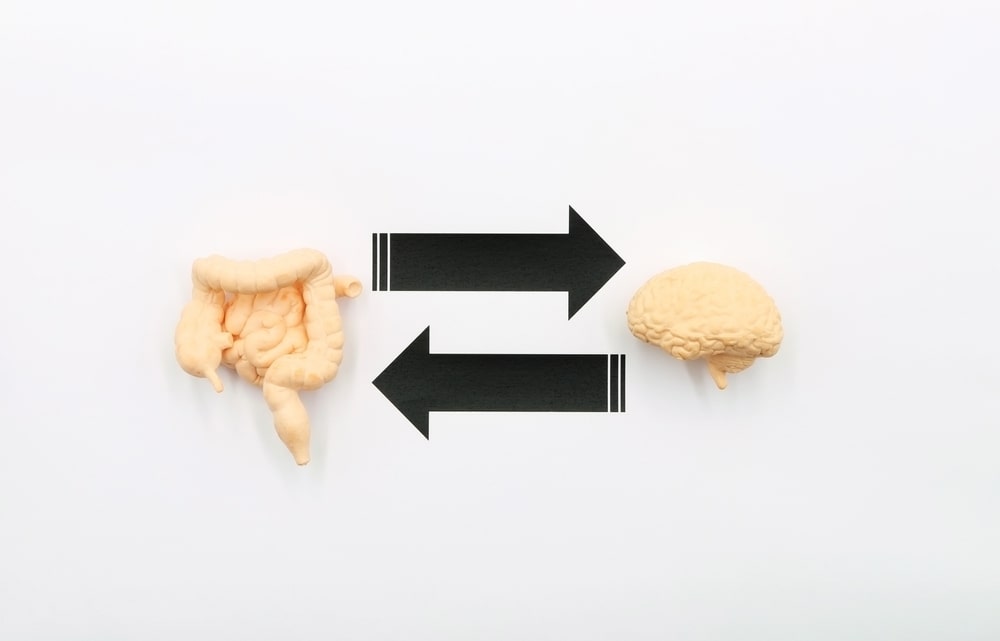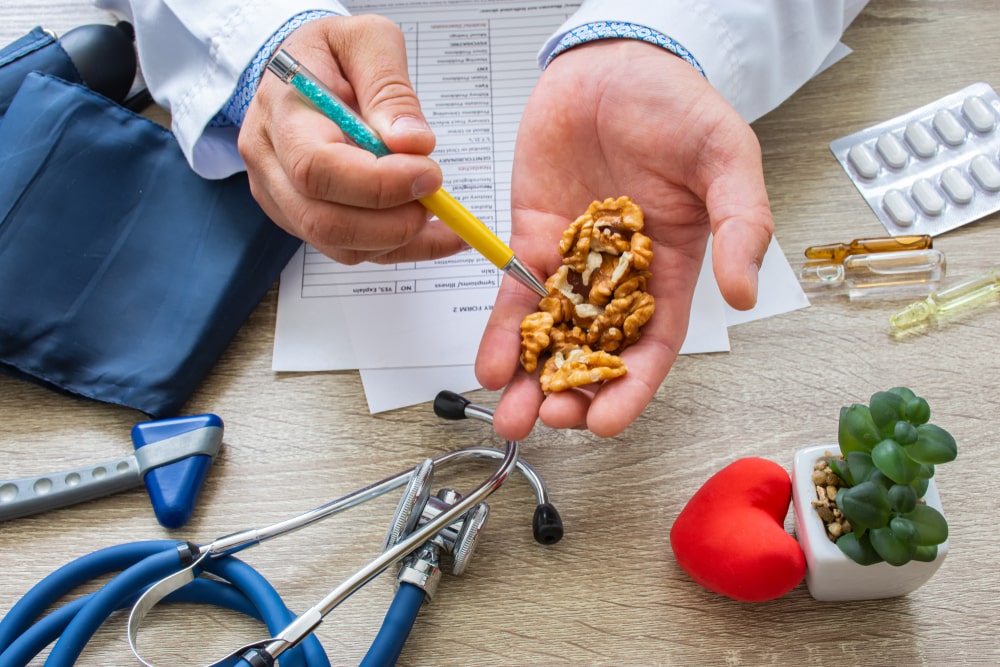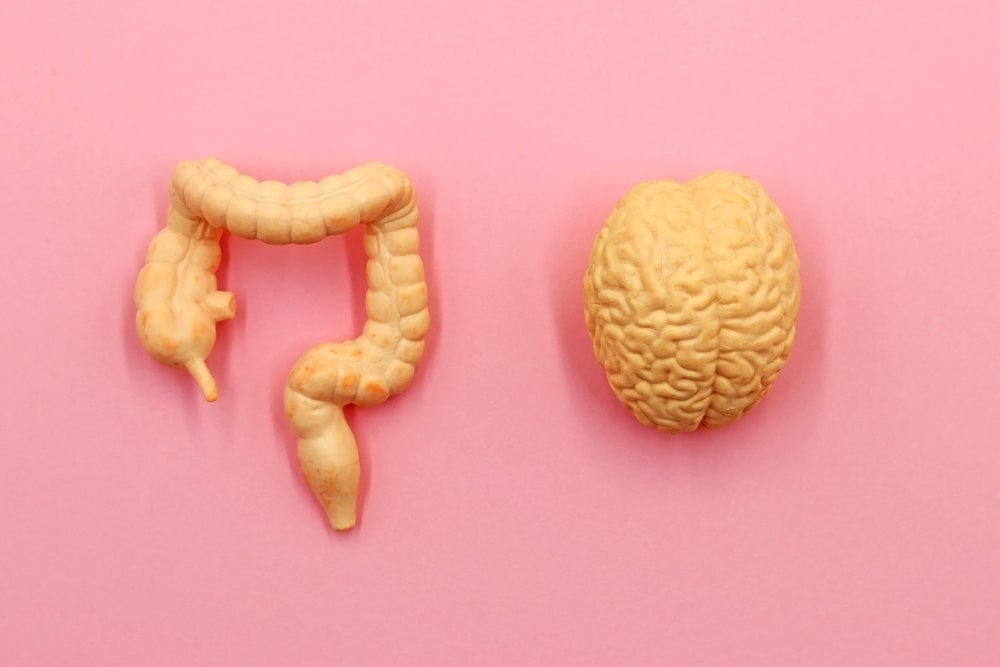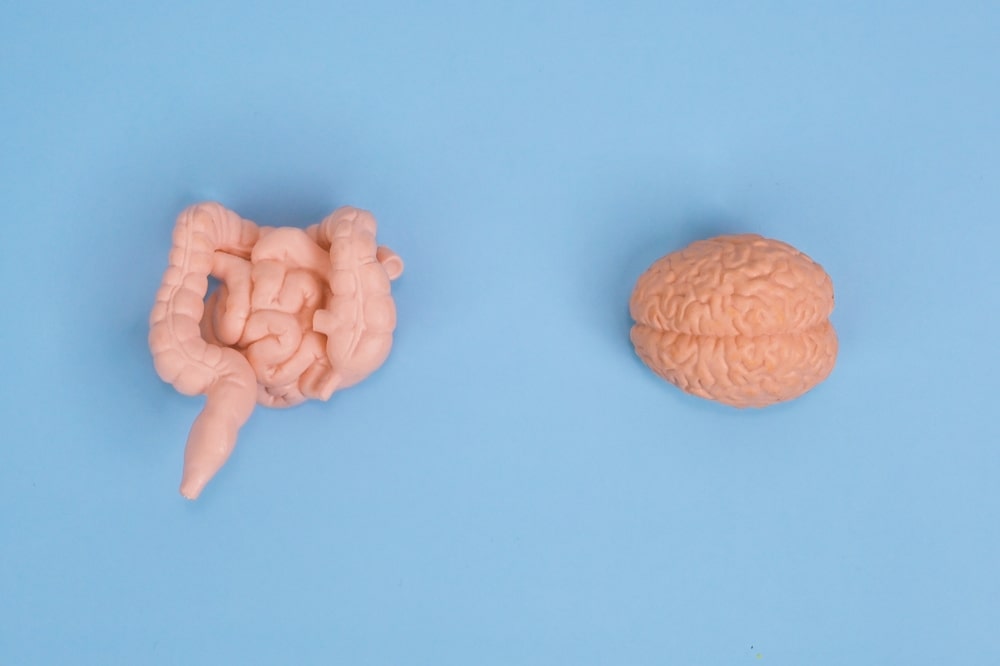The relationship between the gut and the brain can cause both anxiety and digestive issues. Have you ever gone through something “gut-wrenching“? Do particular circumstances cause you to “feel nauseous“? Have you ever had stomach butterflies”? There is a reason why we employ these phrases. Emotional sensitivity is present in the digestive system. All of these emotions—as well as others—can cause symptoms in the gut, including anger, anxiety, sadness, and joy.
In recent years, scientific research has uncovered a remarkable and intricate connection between two of our body’s most vital systems: the gut and the brain. This fascinating relationship, often referred to as the “gut-brain connection” or “gut-brain axis,” highlights the profound impact that the health of our digestive system can have on our cognitive and emotional well-being.
In this blog, we will delve into the intricate world of the gut-brain connection, exploring its mechanisms, implications, and ways to nurture a harmonious relationship between these two systems.
What is the Gut-Brain Axis?

The gut-brain axis refers to the bidirectional communication network that connects the central nervous system (the brain and spinal cord) with the enteric nervous system (the complex network of nerves embedded in the walls of the gastrointestinal tract). This intricate connection enables constant communication and interaction between the gut and the brain, allowing them to influence each other’s functions and impacting various aspects of human health and well-being.
Key Components of the Gut-Brain Connection/Axis:
- Neural Pathways: The vagus nerve, a major nerve that extends from the brainstem to the abdomen, serves as a primary conduit for communication between the gut and the brain. It carries signals in both directions, allowing the brain to influence gut functions and vice versa. This pathway is essential for regulating digestive processes, immune responses, and even aspects of mood and emotional states.
- Neurotransmitters: Chemical messengers called neurotransmitters play a pivotal role in transmitting signals within the nervous system. Notably, many of these neurotransmitters are found in abundance within the gut. For instance, serotonin, a neurotransmitter often associated with mood regulation and well-being, is produced both in the brain and the gastrointestinal tract. This has led to the characterization of the gut as the “second brain” due to its significant influence on emotional and cognitive functions.
- Microbiota Influence: The gut microbiota, the diverse community of microorganisms residing in the digestive tract, also plays a critical role in the gut-brain axis. These microorganisms produce various metabolites that can impact neurotransmitter production, immune responses, and inflammation levels. Disruptions in the balance of gut microbiota, often referred to as dysbiosis, have been linked to various neurological and psychiatric conditions.
Implications and Significance:
The gut-brain axis has profound implications for a range of health and well-being factors:
- Mental Health: Research suggests that imbalances in the gut microbiota can influence mental health conditions such as anxiety, depression, and stress. The gut-brain axis may contribute to these conditions through its effects on neurotransmitter production and inflammation.
- Stress Response: Stress, whether psychological or physiological, can impact the gut-brain axis. Chronic stress can disrupt the gut microbiota composition and affect gut permeability, potentially leading to gastrointestinal issues.
- Inflammation and Immune Function: The gut is closely linked to the immune system. Dysregulation in the gut-brain axis can lead to systemic inflammation, which has been implicated in various neurological and psychological disorders.
- Neurological Disorders: Emerging evidence suggests that disruptions in the gut-brain axis may contribute to the development or progression of neurodegenerative diseases such as Parkinson’s and Alzheimer’s.
- Cognitive Function: The gut-brain connection can influence cognitive functions such as memory, learning, and decision-making through its effects on neurotransmitters and metabolic processes.
The gut-brain axis exemplifies the intricate interdependence of various bodily systems. The constant communication between the gut and the brain impacts our physical, mental, and emotional well-being. As research in this field continues to advance, we are likely to gain even deeper insights into the fascinating relationship between our “second brain” and our central nervous system.
How the Gut affects the brain?

It is simpler to comprehend why you can feel nauseous before a presentation or have intestinal pain under stress given how intimately the stomach and brain interact. However, this does not imply that functional gastrointestinal disorders are unreal or “all in your head“. Pain and other gastrointestinal symptoms are brought on by a combination of physical and psychological reasons.
Psychosocial factors affect both symptoms and the actual physiology of the gut. In other words, the movement and contractions of the GI tract can be impacted by stress (as well as sadness or other psychological issues).
Additionally, because their brains are more sensitive to pain signals from the GI tract, many persons with functional GI problems experience pain more intensely than other people do. Pain that already exists may seem worse under stress.
Based on these findings, you might predict that therapy to lower stress or treat anxiety or depression will help at least some individuals with functional GI disorders. According to numerous research, psychologically oriented methods are more effective at treating digestive issues than conventional medical care alone.
How to Fix Gut-Brain Connection?

Improving and restoring the gut-brain connection involves adopting a holistic approach that focuses on enhancing gut health, supporting a balanced gut microbiome, and promoting overall well-being.
Here are some strategies that can help you optimize your gut-brain connection:
- Dietary Changes
- Probiotics and Prebiotics
- Manage Stress
- Adequate Sleep
- Healthy Fats
- Hydration
- Mindful Eating
- Limit Antibiotics and Medications
- Limit Alcohol and Caffeine
- Reduce Inflammation
Remember that the gut-brain connection is complex and individual responses may vary. It’s essential to make gradual and sustainable changes and consult with a healthcare professional if you have specific health concerns. By adopting a well-rounded approach to improving gut health, you can positively influence the gut-brain connection and support both your physical and mental well-being.
What foods help the Gut-Brain Axis?

Certain foods are particularly beneficial for promoting a healthy gut-brain axis due to their impact on gut health, inflammation regulation, and neurotransmitter production. Including these foods in your diet can help support the communication and balance between your gut and brain.
Here are some foods that can contribute to a healthy gut-brain axis:
- Fiber-Rich Foods
- Fermented Foods
- Omega-3 Fatty Acid Sources
- Nuts and Seeds
- Leafy Greens
- Probiotic-Rich Foods
- Prebiotic Foods
- Colorful Vegetables and Fruits
- Turmeric
- Green Tea
- Dark Chocolate
- Lean Proteins
Endnote:

The gut-brain connection is a testament to the intricate interplay between different systems within our body. From influencing mood and cognitive function to affecting digestion and overall well-being, the health of our gut and brain are intimately linked.
By embracing a holistic approach that involves a balanced diet, mindful lifestyle choices, and stress management techniques, we can foster a positive and symbiotic relationship between our gut and brain, ultimately leading to improved physical, mental, and emotional health.
The connections between your stomach and brain on a physical and chemical level are referred to as the gut-brain axis. Your gut and brain are connected by millions of neurons and nerves. Your gut produces several substances, including neurotransmitters, which have an impact on your brain.
You might be able to enhance the health of your brain by modifying the sorts of bacteria in your stomach. Your gut health may be improved by consuming omega-3 fatty acids, fermented foods, probiotics, and other foods high in polyphenols, which may aid the gut-brain axis.
FAQs:
Why gut is considered as the second brain?
It’s common to refer to the enteric nervous system, which controls our gut, as the body’s “second brain.” This complex network employs the same chemicals and cells as the brain to aid in digestion and notify the brain when anything is wrong, despite the fact that it cannot write poetry or solve mathematics.
Does Serotonin produced in the gut go to the brain?
Yes, the vagus nerve carries neurotransmitters like serotonin from the gut to the brain.
Are there brain cells in the gut?
Yes, there are brain cells in the gut system.
Can bad gut health cause brain fog?
It frequently results in consequences like autoimmune illness, chronic inflammation, IBS (Irritable Bowel Syndrome), and food sensitivities. One of the potential causes of brain fog is inflammation brought on by a leaky gut, which can interfere with the communication between your gut and brain and lead to confusion and forgetfulness.
Are there more neurons in the gut than in the brain?
Yes, there are over 5 times more neurons in the gut than in the brain. That is how the gut-brain connection is secured.
References:
- https://www.health.harvard.edu/diseases-and-conditions/the-gut-brain-connection
- https://www.healthline.com/nutrition/gut-brain-connection
- https://www.hopkinsmedicine.org/health/wellness-and-prevention/the-brain-gut-connection
Read Also:
https://www.liferxpharmacy.com/blog/12-best-foods-for-skin-health/



Comments are closed.